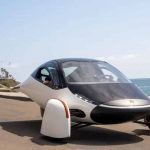These tech startups just unveil the next generation of solar-powered EVs with driving range of 200 to 450 miles
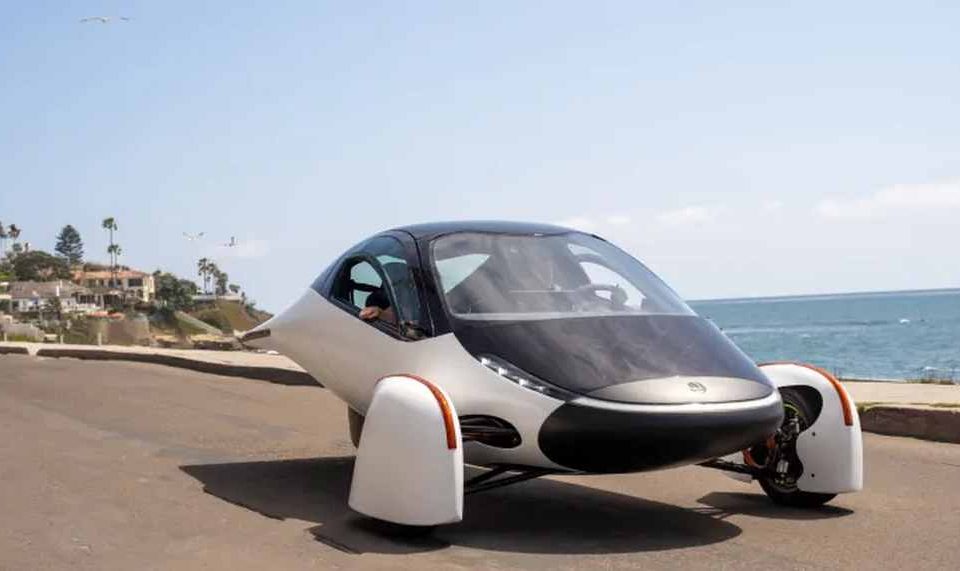
Electric vehicle (EV) adoption has increased in recent years, thanks in part to the popularity of Elon Musk’s Tesla Motors. By 2030, the global number of electric vehicles on the road is projected to reach 125 million as governments around the world double their effort to boost electric car ownership through various incentives and other electrification projects.
While all eyes are on Tesla and other legacy automakers that recently pivoted to EVs, a dozen tech startup companies are also working on the next generation of solar-powered electric vehicles that could forever change the way we look at electric vehicles.
For decades, countless inventors and engineers have tried to harness the power of the Sun. Thanks to advancements in photovoltaic cells, it’s now more affordable to use solar energy to generate electricity for your homes. The dream of using solar energy to power transportation continues to push the technology boundary in the automotive industry.
However, building a practical solar-powered car, one that can actually compete with fossil fuel vehicles and today’s electric vehicles, has never really seemed possible. Until now. Engineers at Sono Motors in Germany, Aptera Motors, and Lightyear–are on track to release the world’s first commercial solar electric vehicles. In fact, their solar-powered EVs are scheduled to be on sale in the U.S. and European markets as early as 2023.
Last month, we wrote about German tech startup Sono Motors after it unveiled its Sion, the first solar-powered EV car for the masses for just $25,000. The car is fitted with a lithium iron phosphate battery for customers that travel a long distance, giving it a total 190-mile range, with the ability to charge it to 80 percent in 35 minutes using a fast-charging station.
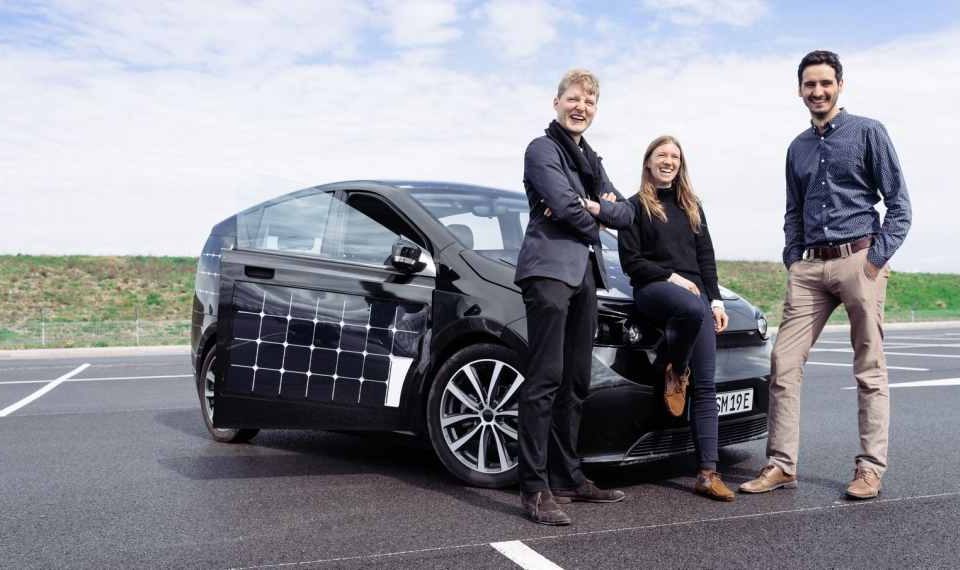
Sono Motors is aiming to launch its $25,000 five-seater hatchback in Europe first, with production starting in the second half of next year. The startup has also received orders from customers in Germany, Austria, and Switzerland before the year is out. Sono plans to initial deliveries to customers before the end of the year.
“So this car gives you per year 5,700 miles free of charge, you know, free of any costs, because it comes from the sun. This is roughly 15 miles a day, which is perfect for commuters,” said Sono Motors co-CEO and co-founder Laurin Hahn.
But Sono Motors is not alone. Aptera Motors (formerly Accelerated Composites) is another startup working on solar-powered electric cars.
Aptera, whose name comes from the ancient Greek for “wingless,” is a San Diego, California-based startup founded in 2005 and later liquidated in 2011. Then two years ago, in early 2019, Aptera was re-formed by the original founders, Chris Anthony and Steve Fambro, as Aptera Motors Corp.
Unlike Sono Motors, its solar-powered zippy three-wheeler is on the opposite end of the spectrum from Sono’s in terms of looks. Its two-seat vehicle has motors in the wheels for greater efficiency and is designed to be as aerodynamic as possible. It’s set to begin production in the U.S. next year.
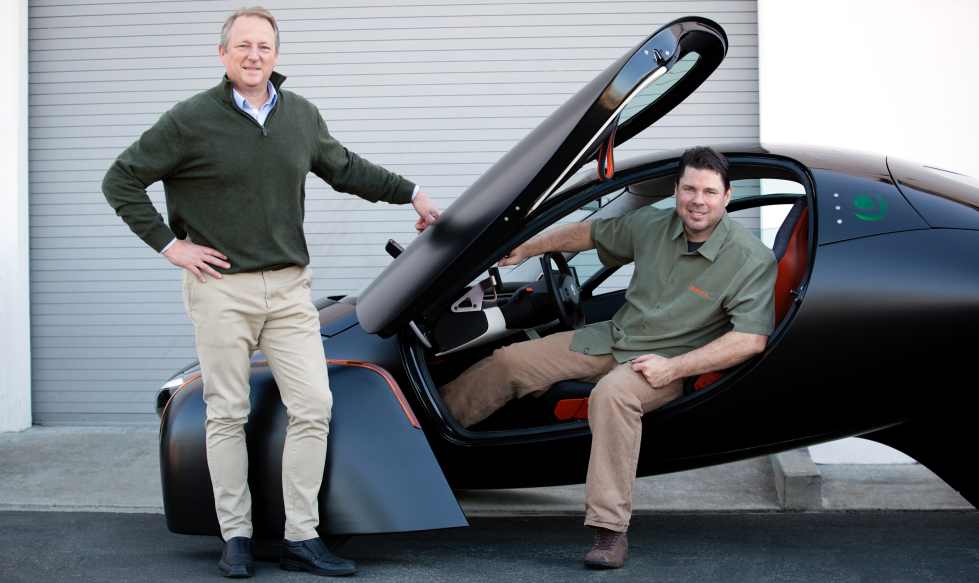
With funding from a crowdfunding campaign, the two co-founders were able to restart the development of what is touted as the most highly efficient road vehicle in the world. Now Aptera is rolling out its first mass-produced solar car this year.
The three-wheel car is an ultra-aerodynamic electric vehicle covered in 34 square feet of solar cells. The car is so efficient that, on a clear day, those cells alone could provide enough energy to drive about 40 miles — more than twice the distance of the average American’s commute.”
The second startup is Lightyear, a Netherlands-based solar electric car startup that develops an ultra-energy-efficient automotive platform. The company was founded in 2016 by Arjo van der Ham, Koen van Ham, Lex Hoefsloot, Martijn Lammers, and Qurein Biewenga.
Lightyear team consists of an international team of 90 experienced engineers including triple winners of the World Solar Challenge from the aerospace, racing, and automotive industry (e.g. ASML, Tesla, Ferrari andInalfa) and alumni of the Eindhoven University of Technology. The company’s flagship solar-powered car is the Lightyear One, a prototype ‘solar car’ covered in solar panels with 450 miles of range. Lightyear said it plans to start delivering to consumers in 2021.
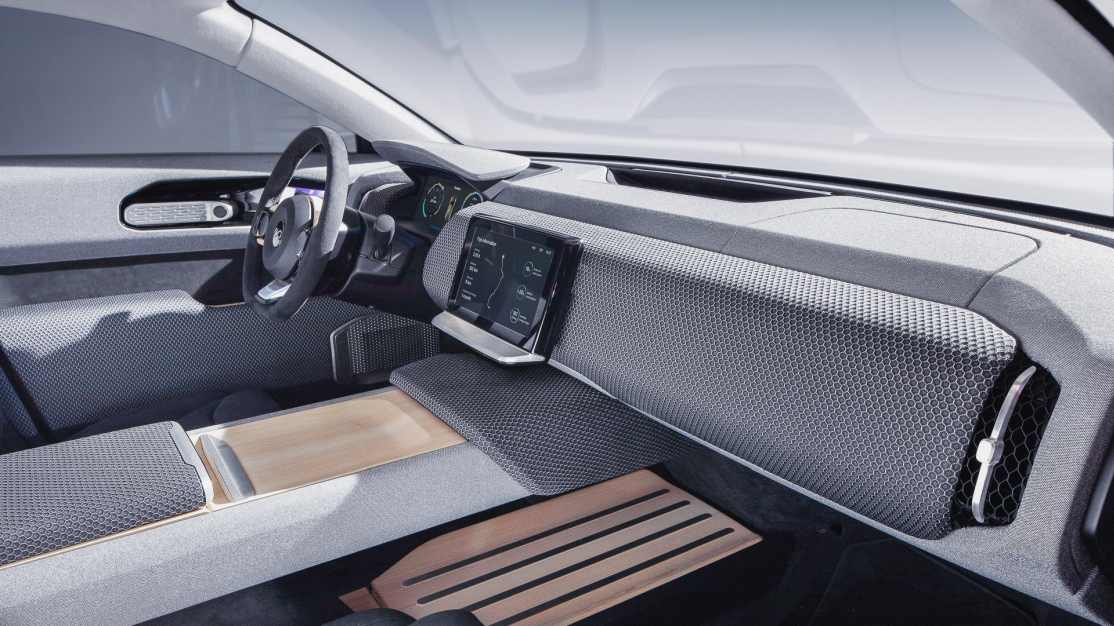
Lightyear One is a long-range solar electric vehicle designed to be grid-independent and to drive anywhere. Its unique vehicle architecture and technology have been developed with high efficiency in mind, allowing Lightyear One to consume only 83 Wh/km — two to three times less energy than any other electric vehicle on the market today. This results in an exceptional range of 725 km (WLTP) with the lowest emissions, the lowest charging frequency, and 7,000 to 20,000 kilometers of free, effortless, and clean solar range every year.
Below is a video of Sonos Motors in action.
Here’s Aptera in action.
Below is a video of Lightyear.




